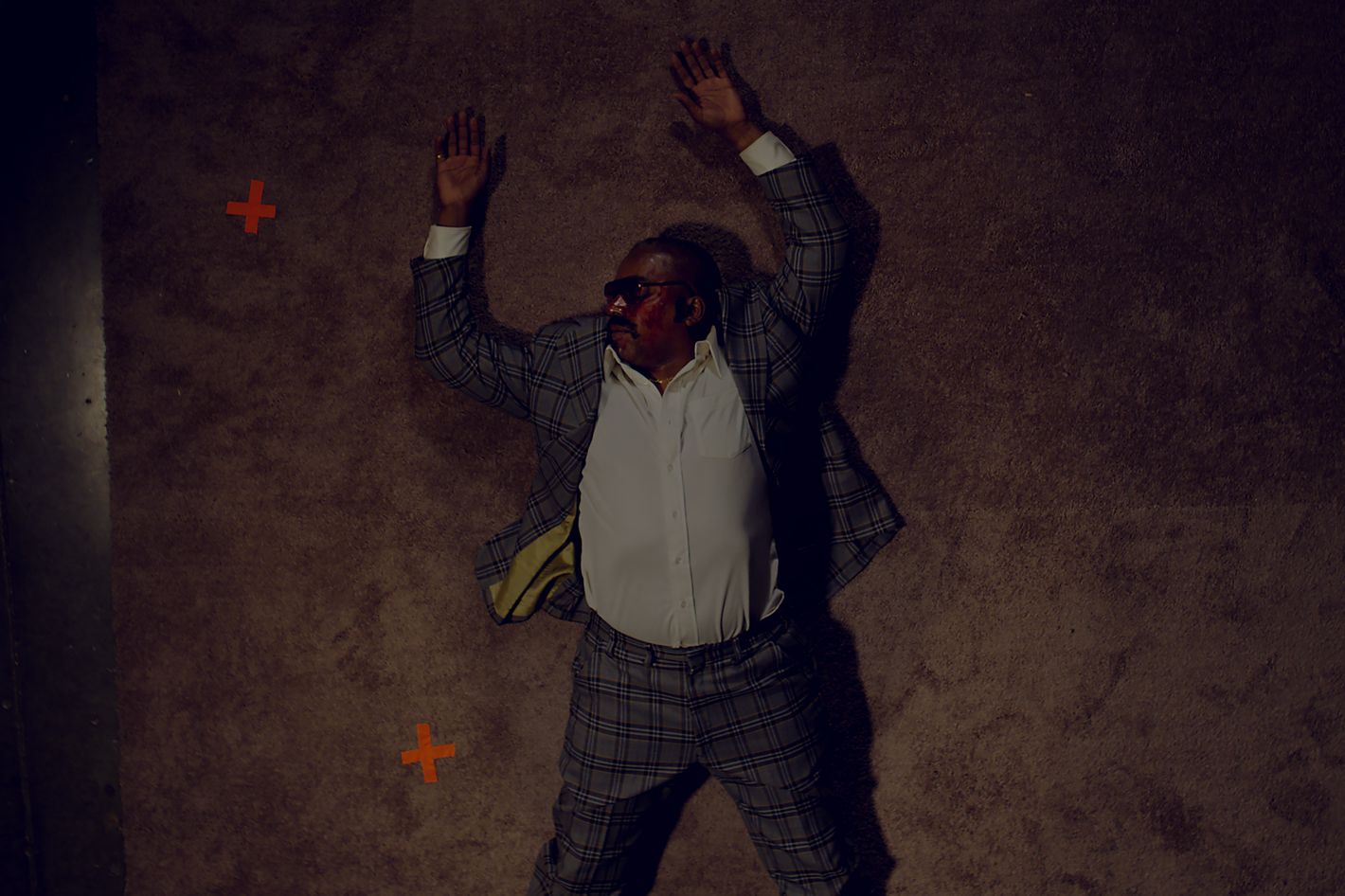
Perhaps no character in American cinema has proved more relevant to our times than Taxi Driver’s Travis Bickle, who seems to contain within him the demonic energies of all our incels and xenophobes and mass shooters and January 6 insurrectionists combined. As his yellow cab drifts through clouds of steam like a barge traversing the underworld, Robert De Niro’s Bickle famously muses to all of us, “Someday a real rain will come and wash all this scum off the streets.” The film’s cleansing flood arrives in a final climactic scene in which Bickle saves Jodie Foster’s young prostitute from her pimp and his associates — all of whom are notably white — that still manages to shock with its violence today.
The lore surrounding the 1976 movie held that Martin Scorsese and screenwriter Paul Schrader changed the race of the pimp — Sport, played by Harvey Keitel — from Black to white from political considerations. The same went for the other two victims murdered by Bickle. Indeed, Schrader recently confirmed to the New York Times, “someone at Columbia Pictures said to Marty, ‘we’re going to have a riot in the theater if we cast Sport as Black,’ and I realized they were completely right.” He added, “I think it would have been a much more vile and revolting film if his hatred was directed completely at people of color. You can’t make something that is so off the meter that it can’t be seen or that people simply can’t bear watching.”
At the same time, Keitel always looked silly imitating a Black pimp. The movie itself doesn’t shy away from blatant racism. It clearly signals that Bickle views Black people as part of the scum that needs to be washed away, along with the “animals” and “fairies” and “buggers” and “dopers.” Taxi Driver is a cultural landmark marking an onset of American carnage, but the racial confusion at the end makes it seem as if it is afraid of itself.
The artist Arthur Jafa’s devastating new film ***** — which the artist says is pronounced Redacted — at the Gladstone Gallery reconfigures the massacre at the end of Taxi Driver. Using advanced forms of splicing and editing, Jafa seamlessly replaces “the white characters with Black characters they had intended,” as he told the Times. The result is as disturbing as Schrader had predicted — more so. This inversion lets us confront everything that was missing in the great but odd original. These replaced absences punctuate and supercharge Bickle’s hatred and narcissism, turning the spectacle of violence into what it really was: a hate crime against Black people.
Jafa’s 73-minute film plays variations of the scene over and over again. Its coloring and images are dark, each cut adds to and complicates the last one, and the sound tracks where characters are, all coming together to create a truer filmic realism. In each version, the first three cops to arrive at the scene of Bickle’s rampage are Black, and Jafa changes the pimp’s name from Sport to Scar, after the villain in John Ford’s 1956 The Searchers, a film that Scorsese and Schrader cited as an influence on Taxi Driver with its narrative of a white man saving a white woman from the clutches of the Comanche. Scar wears a Black Panther button. In one scene, he sings a Stevie Wonder song that filled the summer of 1976. Jafa even gives the pimp an actual scar on his face.
Taxi Driver depicted all kinds of racism. There’s talk of “jungle bunnies,” Scorsese himself plays a customer in Bickle’s cab who seethes over his wife having sex with a Black man and vows vengeance, and when Bickle shoots a Black robber in a bodega, the Puerto Rican owner lets him get away. To underscore just how obviously this film was always about race and the racial tensions boiling over then, Jafa depicts a brutal scene in which Peter Boyle’s Wizard, a fellow cab driver, talks about “Mau Mau land” in a diner while Black pimps glare at them. In the original, Bickle notoriously points his gun on himself and pulls the trigger, only to find he’s out of bullets; in one alternate ending in Jafa’s mind-boggling reworking, Bickle blows his head off.
The critic Alex Greenberger has dismissed ***** as “nauseating” and “not unlike the horrifying footage of snuffed-out Black life that has become an unfortunate staple of our current moment,” a “nihilistic loop” from which viewers will want to escape. But the comparison — between civilian footage of mostly white cops killing very real, mostly Black victims and a Black artist foregrounding the racial intent and undertones of a classic American film — strikes me as wrongheaded. “My Travis Bickle is Dylann Roof,” Jafa told the Times. “I think he always was Dylann Roof.” The 73-minute loop of racially motivated murder in ***** is the masterpiece that Taxi Driver never was. Jafa offers a new filmic lens that renders the twilight zone of the original into something starkly real — and what it intended to be. The question it asks is whether we have the courage to see it.